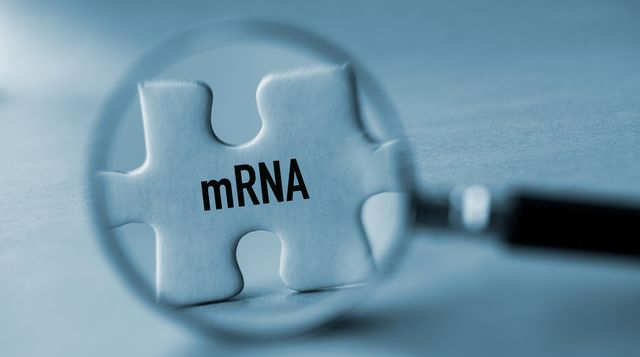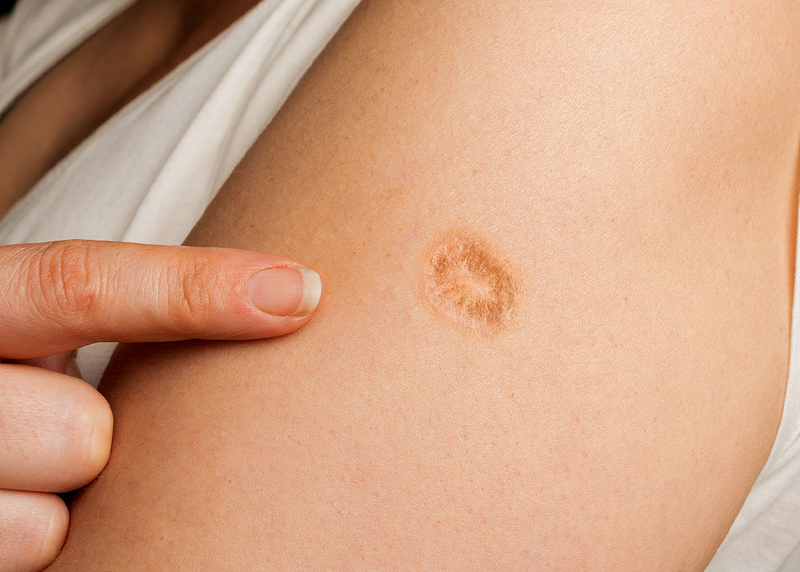On Oct. 2, 2023, the Nobel Assembly at Karolinska Institutet in Stockholm, Sweden awarded the 2023 Nobel Prize in Physiology or Medicine jointly to scientists Katalin Karikó, PhD and Drew Weissman, MD, PhD “for their discoveries concerning nucleoside base modifications that enabled the development of effective mRNA vaccines against COVID-19.” The mRNA (messenger RNA) “vaccines”—which are often described as gene therapies—work by delivering into human cells a genetic code instructing them to make a synthetic SARS-CoV-2 spike protein, provoking the cells to mount a strong inflammatory response and produce large amounts of antibodies that are supposed to help reduce the severity of a SARS-CoV-2 infection associated with COVID symptoms.1 2 3 4
One of the key reasons for the apparent success of the research, which was conducted by Drs. Karikó and Weissman in the early development of synthetic mRNA technology, was their ability to overcome the often hyper-inflammatory responses that synthetic mRNA provoked, making it unsuitable for use in vaccines. But Drs. Karikó and Weissman discovered that by “making small chemical tweaks to the mRNA molecules,” they could eliminate destructive hyper-inflammatory responses and also significantly increase the production of vaccine protein. This became the basis for the research that led to the production of the Pfizer/BioNTech’s Comirnaty and Moderna/NIAID Spikevax COVID-19 shots.1
According to vaccine immunologist John Tregoning, PhD at Imperial College London:
They demonstrated that changing the type of the RNA nucleotides within the vaccine altered the way in which cells see it. This increased the amount of vaccine protein made following the injection of the RNA, effectively increasing the efficiency of the vaccination.1
The problem of hyper-inflammatory responses associated with mRNA technology was highlighted in a paper published in the journal Nature on Jan. 12, 2018.5 6 In that paper, Dr. Weissman and three co-authors acknowledged:
A possible concern could be that some mRNA-based vaccine platforms induce potent type I interferon responses, which have been associated not only with inflammation but also potentially with autoimmunity. … Thus, identification of individuals at an increased risk of autoimmune reactions before mRNA vaccination may allow reasonable precautions to be taken.5 6
The mRNA Adverse Reactions Were Not Resolved
The award of the Nobel Prize in Physiology or Medicine to Drs. Karikó and Weissman would seem to indicate that the hyper-inflammatory response issue was eventually resolved, as was the concern over the synthetic mRNA triggering autoimmunity. In their paper, Dr. Weissman and his co-authors also cited a study showing that extracellular RNA “promoted blood coagulation and pathological thrombus formation,” so there was also a concern over the possibility of the mRNA technology contributing to blood clotting. The logical assumption is that that problem was also eventually resolved by Drs. Karikó and Weissman, as well.5 6
Unfortunately, it seems that Drs. Karikó and Weissman did not succeed in working out all the kinks in the research for which they’ve been recognized by the Nobel Assembly. Both the mRNA-based Comirnaty and Spikevax shots, which have been given to hundreds of millions of people around the world, have been associated with inflammation, autoimmunity and blood clotting since the companies were granted Emergency Use Authorization (EUA) by the U.S. Food and Drug Administration (FDA) and began distributing mRNA COVID shots for public use in 2020-2021.7 8 9 10 11 12 13 14 15 16
Use of mRNA Did Not Make COVID Shots More “Efficient”
Then, of course, there is the “efficiency” issue. As Dr. Tregoning noted, the modifications made by Drs. Karikó and Weissman to their mRNA technology that was thought to have eliminated hyper-inflammatory responses, also increased the production of vaccine protein, thereby “increasing the efficiency of vaccination.” The Nobel Assembly stated that the Nobel Prize was awarded to Drs. Karikó and Weissman for their “discoveries concerning nucleoside base modifications that enabled the development of effective mRNA vaccines against COVID-19.”1
But were the mRNA COVID shots “effective”? Certainly not from the standpoint of a vaccine, or at least from the traditional understanding of what a vaccine is expected to do—which is to prevent infection by a pathogen (like a virus) and its spread. As early as June 2020, Anthony Fauci, MD, director of the U.S. National Institute of Allergy and Infectious Diseases (NIAID), and other infectious disease professionals were cautioning that there was no guarantee the mRNA COVID shots under development would prevent people from being infected with the SARS-CoV-2 virus and spreading it to other people. The World Health Organization (WHO) reiterated this warning in December 2020.17 18
At a press conference on Dec. 28, 2020, WHO chief scientist and pediatrician Soumya Swaminathan, MD said:
We continue to wait for more results from the vaccine trials to really understand whether the vaccines, apart from preventing symptomatic disease and severe disease and deaths, whether they’re also going to reduce infection or prevent people from getting infected with the virus, then from passing it on or transmitting it to other people. I don’t’ believe we have the evidence on any of the vaccines to be confident that it’s going to prevent people from actually getting the infection and therefore being able to pass it on.18
Dr. Swaminathan continued…
So the first primary objective is to decrease the impact the disease is having on people’s lives and, therefore, that will be a major step forward in bringing the world back to some kind of normal. The second phase is then looking at how will this vaccine affect transmission. We just don’t know enough yet about length of protection and other things to be absolutely able to predict that, but we should be able to get good control of the virus.17
It was at that point that it became clear that COVID “vaccines” were not really going to be vaccines after all, but rather “therapies” (specifically gene therapies) to try to prevent severe symptoms and complications of the disease (COVID-19) caused by the virus (SARS-CoV-2). By July of 2021, it was clear that the mRNA COVID shots were not effective in preventing SARS-CoV-2 infection and transmission. During that month, there was an outbreak of COVID in Provincetown, Massachusetts, in which 74 percent of those infected and diagnosed were fully vaccinated.19
In a CNN interview on Aug. 5, 2021, the director of the U.S. Centers for Disease Control and Prevention (CDC), Rochelle Walensky, MD confirmed what had long been known or at least strongly suspected: that the mRNA COVID shots were not able to “prevent transmission.”20 21
By all indications, the mRNA technology used to develop the mRNA COVID shots did not live up to the expectations of the research conducted by Drs. Karikó and Weissman. The mRNA shots have been shown to produce several of the major adverse reactions that Dr. Weissman cited in the 2018 paper he co-wrote, and it turns out they have not been particularly “efficient” as a “vaccine.”
This is the pharmaceutical product that merited a Nobel Prize?
If you would like to receive an e-mail notice of the most recent articles published in The Vaccine Reaction each week, click here.
Click here to view References:1 Geddes L. Scientists whose work enabled mRNA Covid vaccine win medicine Nobel prize. The Guardian Oct. 2, 2023.
2 Keyton D, Corder M, Burakoff M. Karikó and Weissman win Nobel Prize in medicine for work that enabled mRNA vaccines against COVID-19. The Associated Press Oct. 2, 2023.
3 Press Release. The Nobel Prize in Physiology or Medicine 2023. The Nobel Prize Oct. 2, 2023.
4 Young LJ. Scientists behind mRNA COVID Vaccines Win 2023 Nobel Prize in Physiology or Medicine. Scientific American Oct. 2, 2023.
5 Fiore K. Want to Know More About mRNA Before Your COVID Jab? MedPage Today Dec. 3, 2020.
6 Pardi N, Hogan MJ, Porter FW, Weissman D. mRNA vaccines — a new era in vaccinology. Nature Jan. 12, 2018.
7 Aripaka P. EU finds potential link between heart inflammation and mRNA COVID shots. Reuters July 9, 2021.
8 Baumeier C et al. Intramyocardial Inflammation after COVID-19 Vaccination: An Endomyocardial Biopsy-Proven Case Series. Int J Mol Sci July 2022; 23(13): 6940.
9 Trougakos IP et al. Adverse effects of COVID-19 mRNA vaccines: the spike hypothesis. Trends Mol Med July 2022; 28(7): 542–554.
10 Zhu X et al. Dynamics of inflammatory responses after SARS-CoV-2 infection by vaccination status in the USA: a prospective cohort study. The Lancet Aug. 7, 2023.
11 Algatari S et al. Emergence of Post COVID-19 Vaccine Autoimmune Diseases: A Single Center Study. Infect Drug Resist 2023; 16: 1263–1278.
12 Guo M et al. Insights into new-onset autoimmune diseases after COVID-19 vaccination. Autoimmun Rev July 2023; 22(7): 103340.
13 Sachinidis A, Garyfallos A. COVID‐19 vaccination can occasionally trigger autoimmune phenomena, probably via inducing age‐associated B cells. Int J Rheum Dis January 2022; 25(1): 83–85.
14 Bekal S et al. Thrombosis Development After mRNA COVID-19 Vaccine Administration: A Case Series. Cureus July 4, 2023.
15 Bhan C et al. An unusual presentation of acute deep vein thrombosis after the Moderna COVID-19 vaccine—a case report. Annals of Translational Medicine Oct. 31, 2021; 9(20).
16 Yousaf Z at al. Thrombosis post-mRNA-based SARS-CoV-2 vaccination (BNT162b2) – Time to think beyond thrombosis with thrombocytopenia syndrome (TTS). ScienceDirect May 2022; 7.
17 Cáceres M. First COVID-19 Vaccines May Not Prevent SARS-CoV-2 Infection Says Fauci. The Vaccine Reaction July 13, 2020.
18 Fisher BL. WHO, Fauci Warn COVID-19 Vaccines May Not Prevent Infection and Disease Transmission. The Vaccine Reaction Jan. 3, 2021.
19 TVR Staff. COVID Vaccines Not Proven to Prevent SARS-CoV-2 Infection or Transmission. The Vaccine Reaction Aug. 9, 2021.
20 Cáceres M. COVID Vaccines No Longer Able to “Prevent Transmission” of SARS-CoV-2. The Vaccine Reaction Sept 12, 2021.
21 Hains T. CDC Director: Vaccines No Longer Prevent You From Spreading COVID. RealClear Politics Aug. 21, 2021.














4 Responses
I guess a Nobel Prize can be bought. Thank you for a well-researched article. These are important facts.
https://www.ncbi.nlm.nih.gov/pmc/articles/PMC9012513/
In the end, billions of lives are potentially at risk, given the large number of individuals injected with the SARS-CoV-2 mRNA vaccines and the broad range of adverse outcomes we have described. We call on the public health institutions to demonstrate, with evidence, why the issues discussed in this paper are not relevant to public health, or to acknowledge that they are and to act accordingly. Furthermore, we encourage all individuals to make their own health care decisions with this information as a contributing factor in those decisions.
CDC and WHO knows the harm this vaccine can cause. And still, they insist, that not only is it safe, it’s still being mandated.
17. Conclusions
“It is imperative that worldwide administration of the mRNA vaccinations be stopped immediately until further studies are conducted to determine the extent of the potential pathological consequences outlined in this paper. It is not possible for these vaccinations to be considered part of a public health campaign without a detailed analysis of the human impact of the potential collateral damage.”
https://www.authorea.com/users/455597/articles/552937-innate-immune-suppression-by-sars-cov-2-mrna-vaccinations-the-role-of-g-quadruplexes-exosomes-and-micrornas
CDC and WHO knows the harm this vaccine can cause. And still, they insist, that not only is it safe, it’s still being mandated.